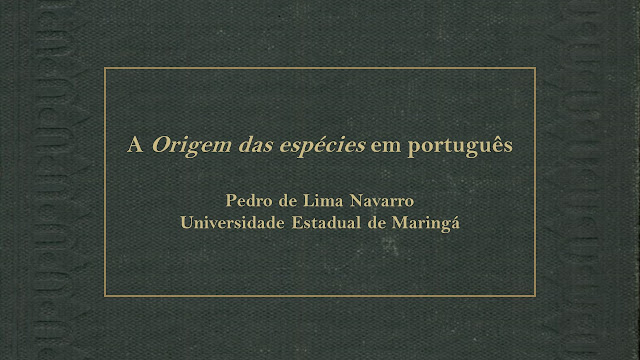Collins e Pinch, O Golem (1993). Cap. 4
"Perfect hindsight is a dangerous ally in the history of science."
CAPÍTULO QUATRO - Os germes da discórdia: Louis Pasteur e as origens da vida.
- Pasteur, em sua tentativa de subjulgar a teoria da abiogênese realizou uma série de experimentos que deveriam obedecer as seguintes regras:
- 1. O meio de cultura deve estar estéril, mas também ser capaz de nutrir vida.;
- 2. Se o frasco for aberto deve se ter cuidado com a entrada de ar puro ou contaminado.
- A determinação de microorganismos no ar por microscopia ainda era controversa, de modo que a esterilização do ar por diversos meios também era passível de descrédito pelos proponentes da abiogênse:
- Though in most cases admission of air treated this way [passed through acids or alkalis, heated or filtered] did not cause sterilised fluids to corrupt, putrescence occurred in enough cases to allow the spontaneous generation hypothesis to live on. In any case, where the treatment of the air was extreme, it might have been that the vital component which engendered life had been destroyed, rendering the experiment as void as the air. (p. 81).
- A recepção dos experimentos de Pasteur foram esquematizadas da seguinte forma:
- Os autores afirmam que argumentos da caixa três duraram pouco, uma vez que pesquisadores passaram de usar métodos artificiais de filtragem. Os argumentos do tipo dois foram utilizados por Pasteur por todo o debate contra Pouchet, sempre questionando a pureza do ar podendo ou não testá-la, mesmo no caso de experimentos com ar filtrado por mercúrio:
- This is interesting because it seems that the contaminated mercury hypothesis was necessary to explain some of Pasteur's own early results. He reported that in his own attempts to prevent the appearance of life by preparing infusions under mercury, he succeeded in only 10% of his experiments. Though, at the time, he did not know the source of the contamination, he did not accept these results as evidence in support of the spontaneous generation hypothesis. In his own words, he '... did not publish these experiments, for the consequences it was necessary to draw from them were to grave fort me not to suspect some hidden cause of error in spite of the car I fas taken to make them irreproachable' (quote in Frley and Geison, 1974, p. 31). In other words, Pasteur was so committed in his opposition to spontaneous generation that he preferred to believe thre was some unknown flaw in his work than to publish the results. He defined experiments that seemed to confirm spontaneous generation as unseccessful, and vice versa. Later the notion of contaminated mercury replaced the 'unknown flaw'.
- Looking back on the incident we must applaud Pasteur's foresight. He was right, of course, and hat the courage of his convictions in sufficient degree to refuse to be swayed by what, on the face of it, was a contrary experimental indication. But it was foresight. It was not the neutral application of scientific method. If Pasteur, like Pouchet, had been supporting the wrong hypothesis we would now be calling his actions 'dogged obstinacy in the face of the scientific facts'. Perfect hindsight is a dangerous ally in the history of science. We shall not understand the Pasteur-Pouchet debate as it was lived out unless ee cut off out backward seeing faculty. (p. 85).
- Outro ponto que desfavoreceu Pouchet foi o enviesamento da Academia de Ciências Francesa, centro da já praticamente institucionalizada ciência francesa. Um dos motivos dessa rejeição era o anti-darwinismo francês, uma vez que acreditava-se que a geração espontânea poderia favorecer ainda mais a teoria por seleção natural, como dito por Collins e Pinch: "One heresy destroyed another". Os franceses cometeram o erro de esquecer que a Origem das espécies não fala sobre a origem da vida.
- Entretanto, os autores afirma que devido a capacidade do feno utilizado por Pouchet de manter esporos resistentes a esterilização, desconhecida na época, a abiogênese poderia ter sobrevivido por mais tempo, sobre falsas premissas no entanto. O que de certa forma ocorreu com Bastian, que seguiu com a abiogênese até o século XX sem saber que descobrira micróbios resistentes a esterilização da época. Mesmo assim, como apontam Collins e Pinch, a comissão teria achado um jeito de provar que Pouchet estava errado. Neste universo alternativo, talvez tivessemos descoberto antes os micróbios resistentes à esterilização do feno.
- Os autores afirmam que Pasteur sabia como interpretar certos resultados como "erros", assim como visto nos capítulos anteriores, a teoria comprova o experimento. Eles concluem:
- Pasteur was a great scientist but what he did bore little resemblance to the ideal set out in modern texts of scientific method. It is hard to see how he would have brought about the changes in our ideas of nature of germs if he had been constrained by the sterile model of behaviour which counts, for many, as the model of scientific method.


Comentários
Postar um comentário